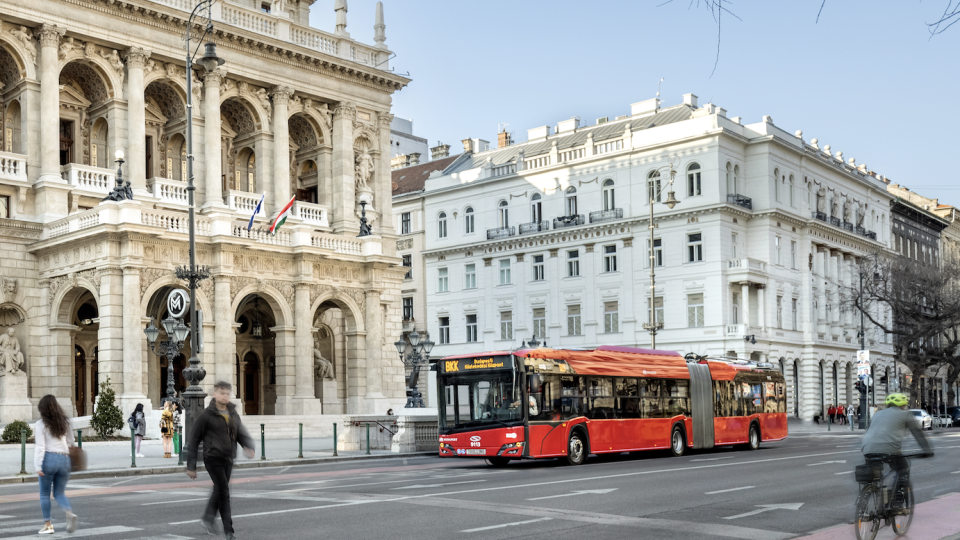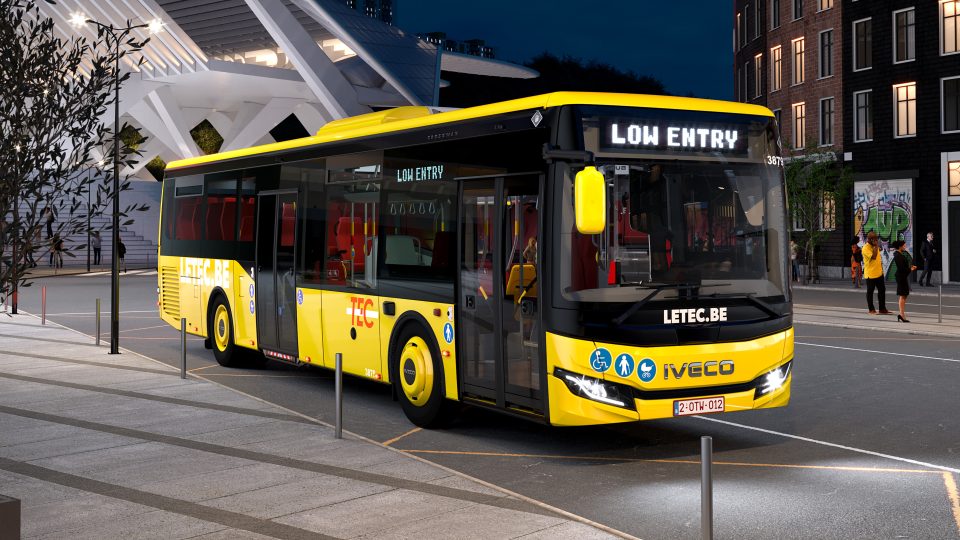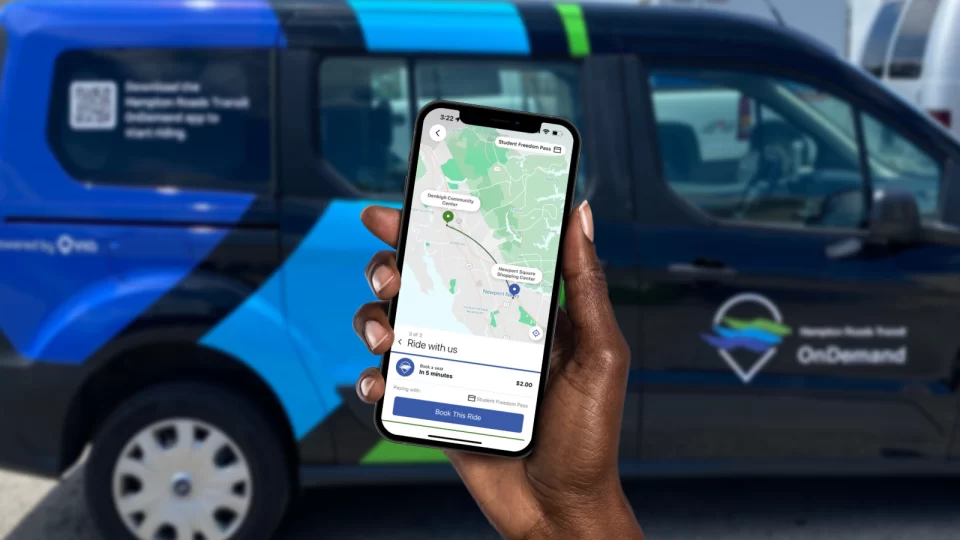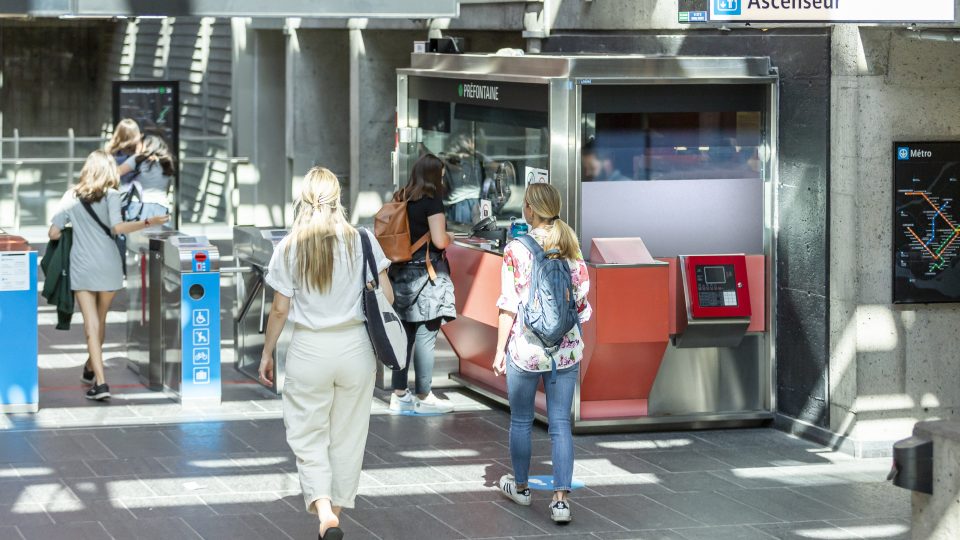All new London buses to be zero emission, Mayor Sadiq Khan announces. Full electrification by 2034
Mayor of London, Sadiq Khan, has announced that all new buses ordered by Transport for London (TfL) for the capital will now be zero-emission. 950 zero-emission buses are already on the road or on order in London. With the market now more mature and expanding in the UK, TfL can guarantee that it will only purchase […]
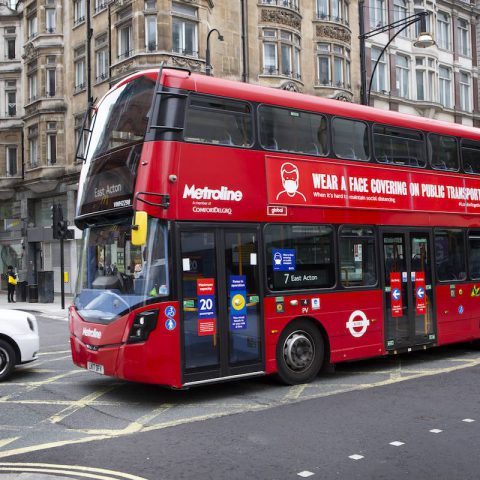
Mayor of London, Sadiq Khan, has announced that all new buses ordered by Transport for London (TfL) for the capital will now be zero-emission.
950 zero-emission buses are already on the road or on order in London. With the market now more mature and expanding in the UK, TfL can guarantee that it will only purchase new zero-emission buses, so that a fully zero-emission bus network can be delivered three years earlier in 2034. However, the UK Government is aiming to reduce carbon emissions by 68 per cent by 2030. «With Government support, TfL can bring London’s bus fleet into the scope of delivering on that target and achieve a fully zero-emission fleet by 2030», Mayor says.
Making buses zero-emission will save four million tonnes of carbon by 2037, and moving the date forward to 2030 will save an additional one million tonnes, city government says. During the summer, a 195-units e-bus order was signed.
In the year of COP26 and after setting out my ambition for London to be net zero by 2030, I’m committed to do all I can to help clean up the transport network and reduce its emissions. London’s toxic air is a shameful health crisis which is causing premature deaths and stunting the growth of children’s lungs. Today, as part of our work to tackle both the harmful emissions we breathe and the climate emergency, I am proud to announce that London will no longer procure new diesel or hybrid buses and will only procure zero-emission buses.
The Mayor of London, Sadiq Khan
London, a full electric bus fleet by 2034
The press note issues by London’s Mayor adds: «Making London’s large bus fleet zero-emission will give British bus manufacturers confidence in large orders enabling them to significantly ramp up production. This will allow local UK authorities to progress towards zero-emission targets that would not be possible otherwise. The acceleration of London’s shift to zero-emission is bringing down costs and enhancing products for the entire country, and with committed funding from the DfT, TfL can ensure that the Government’s commitment to 4,000 zero-emission buses can be achieved faster».
With London making up a third to half of all new bus orders in the UK in any given year, increasing the number of these buses in the capital is also supporting 3,000 jobs across the UK, such as at the Alexander Dennis (ADL) factories in Scarborough and Falkirk, Switch Mobility near Leeds and Wrightbus in Ballymena, Northern Ireland.
The Mayor of London, Sadiq Khan, said: “In the year of COP26 and after setting out my ambition for London to be net zero by 2030, I’m committed to do all I can to help clean up the transport network and reduce its emissions. London’s toxic air is a shameful health crisis which is causing premature deaths and stunting the growth of children’s lungs. Today, as part of our work to tackle both the harmful emissions we breathe and the climate emergency, I am proud to announce that London will no longer procure new diesel or hybrid buses and will only procure zero-emission buses. Today’s announcement builds on the progress we’ve already made tackling toxic air pollution. I’ve worked hard to ensure TfL’s entire bus fleet across now meets the ULEZ standards, this includes 550 zero-emission buses. We need to act now and accelerate the transition to a greener future, with cleaner air for all.”
Louise Cheeseman, TfL’s Director of Buses since July 2021, said: “The world has woken up to the desperate need to make big changes to tackle the climate emergency, and the single biggest thing we can do is to move to a zero-emission bus network as soon as possible. We’ve done everything possible to make the bus network clean and now we are focussed on making it green, which is why it’s so important that we’re able to commit that all new buses in London will be zero-emission. We’re now working to have a completely zero-emission bus network as soon as possible, and with Government support we could do this by 2030 while also stimulating the bus market“.
Campaign for Better Transport asks for more support
Norman Baker, from Campaign for Better Transport which is chairing the Bus Summit, said: “Buses are already one of the most environmentally friendly ways to travel and this announcement will make them even greener, further reducing carbon emissions and air pollution. But there needs to be more support from central government in the form of additional funding, building local authorities’ capabilities, speeding up the roll out of charging infrastructure and encouraging more people to choose the bus. Road traffic, including cars and vans as well as buses, is the single biggest source of air pollution in the capital and accounts for around half of all emissions of harmful nitrogen oxides (NOx) and particulate matter (PM). Transport also produces one quarter of London’s carbon emissions. TfL’s bus fleet has led the way to make its existing diesel buses as clean as possible, but TfL is keen to go further by moving to green electric and hydrogen to eradicate harmful air pollutants and carbon dioxide from the propulsion systems”.
Paul Davies, President & Managing Director, Alexander Dennis Limited: “Transport for London’s accelerated investment in zero-emission buses is great news for the environment and the people of London as much as for the communities and businesses across the UK where these buses will be designed and manufactured, not only helping to underpin skilled jobs and apprenticeships but providing the strong foundation that the UK bus industry needs to prosper both domestically and internationally. The UK Government has the opportunity to further strengthen Britain’s bus manufacturing industry and its world-class expertise in clean bus technology by enabling an even faster transition through additional funding for London.”




